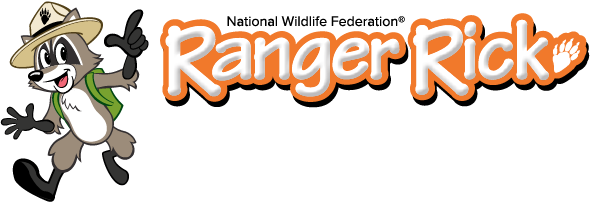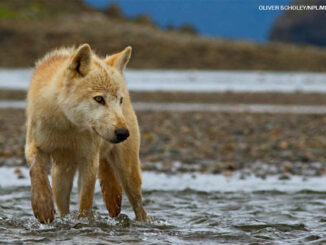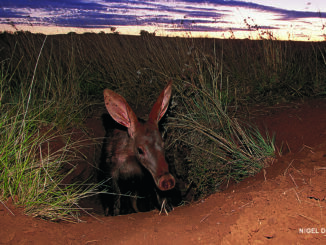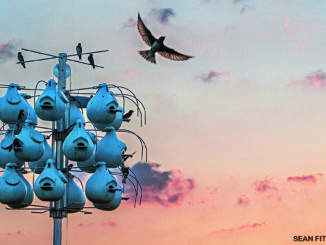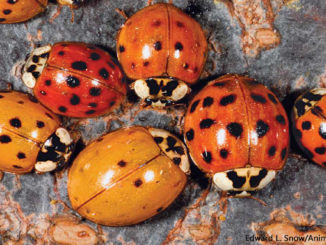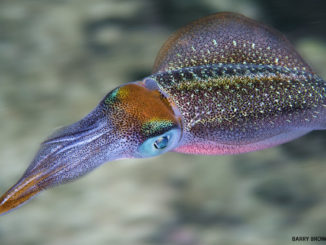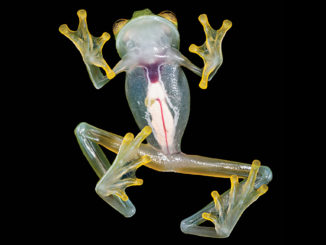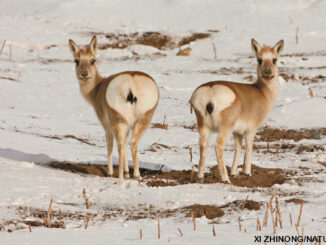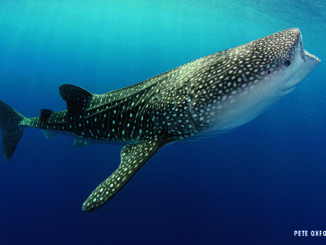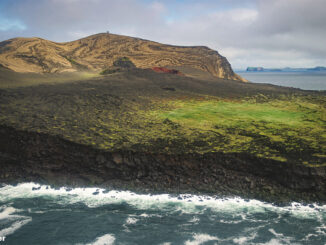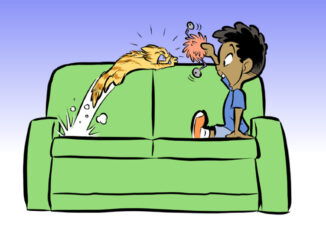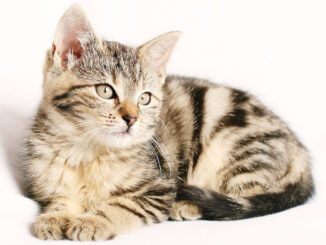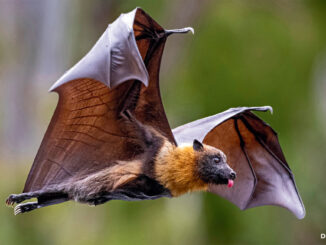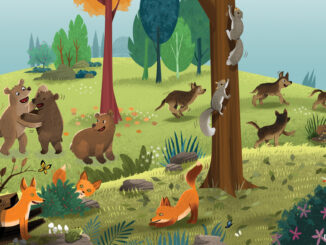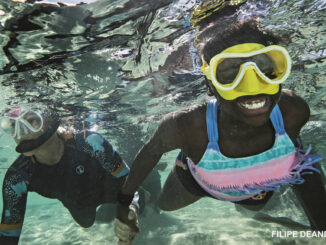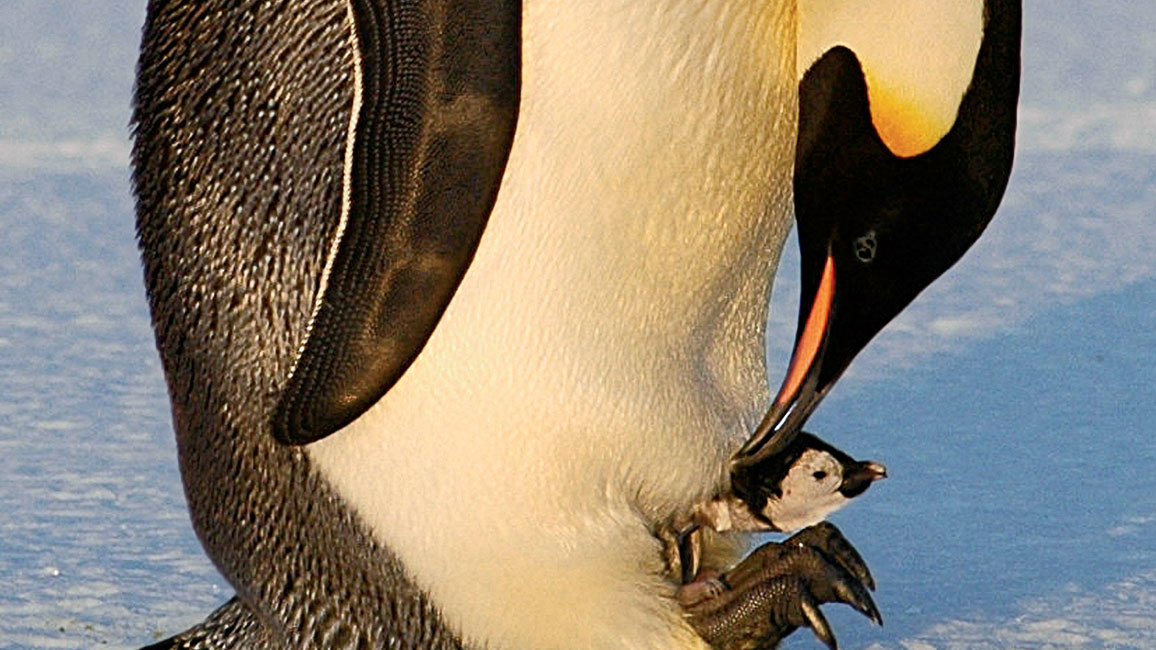
Who’s the best Dad?
By Kate HofmannFor some animal fathers, “daddy duty” is a big deal. Just in time for Father’s Day, you’re about to meet some dads that devote a lot of time to their little ones. Which one wins your vote for World’s Best Dad?
Winter in Antarctica is bitterly cold. That’s when a mother emperor penguin lays her single egg. Then off she goes to the ocean to hunt for food. Papa Penguin stays behind, balancing the egg on his feet and keeping it warm under his belly feathers. He huddles with the other dads as the wind howls. He can’t let the egg touch the ice, or it will freeze. For four months in all, Papa eats nothing but snow. When the egg hatches, he tucks the chick under his feathers (below) and feeds it a milk-like liquid from his throat. Mama returns soon after that, bringing fishy food for the baby. Then, finally, it’s Papa’s turn to go and get a hard-earned meal.
All by himself, a father emu (EE-moo) builds a nest. Mom lays the eggs, and then Dad sits down on the nest and hardly moves until the eggs Who’s the Best Emperor Penguin Emu 30 hatch. Dad doesn’t eat for the whole two-month wait. Several times a day, he carefully turns the eggs to keep all sides warm. There are usually around 11 eggs, but sometimes as many as 20. When the chicks pop out, Dad’s job is far from done. He stays with them (above) for at least another six months while they grow to full size. He teaches them how to find food, and he protects them from predators such as foxes, dingoes, and eagles.
Frogs aren’t usually known for their parental care. Most kinds leave their eggs behind and never look back. Now meet a male three-striped poison frog! In the rainforests of Central or South America, this frog father calls to a female with a loud trill. If she agrees to be his mate, she lays dozens of eggs on plant leaves. Dad fertilizes the eggs and then watches over them for the next two weeks. As soon as the tadpoles hatch, he lets them squirm up onto his back (below). He gives them a “froggy-back” ride to their new home: a pond, a little pool of water in a tree hole, or some other wet place where they can live and eat algae. It will be three months before they turn from tadpoles into little froglets. For this whole time, Dad guards them, doing his best to keep them from harm.
Like the frog above, an emperor tamarin dad carries his babies around on his back (below). Emperor tamarins are small monkeys that live in the steamy rainforests of South America. They’re about the size of squirrels, and they hang out in groups. Most often, the group is a mom and dad and their kids, both babies and grownups. After the mother tamarin gives birth (usually to twins), all the males in the group help take care of the babies. With one or both babies clinging to his back, a male moves through the trees. He returns to Mom only when a hungry baby needs to nurse.
Most insects don’t stick around to raise their babies. But this giant water bug father is a big exception to the rule. The mother bug laid lots of eggs—150 or more—and made a sticky substance to “glue” the eggs onto Dad’s back (above). Then Mom took off, and Dad took over. He’ll stroke the eggs with his back legs to keep them clean and constantly move out of the way of any danger. Dad’s work won’t be done until the babies hatch and swim off three weeks later.
You might guess that a seahorse dad was a mom if you didn’t know this secret: Seahorse eggs stay with the dads—instead of the moms—to develop! With a special tube, a mother seahorse places her eggs in a pouch on Dad’s belly. This expandable pouch might hold from 50 eggs up to 1,000 or more (depending on the species). Safe in Mr. Mom’s pouch, the eggs develop until hatching time. Then the seahorse dad squeezes the babies out. The tiny new seahorses swim off (below) and find seaweed to cling to with their tails. Dad’s job is done—until he’s ready to raise his next batch of babies.
After a mother jawfish lays a clutch of eggs, the father opens wide and, believe it or not, slurps them all up! Don’t worry—this good dad doesn’t swallow them. Instead, his mouth is a perfect place for the eggs to stay until they’re ready to hatch (Below). From time to time, he spits the eggs out and then sucks them back in. This helps them get the oxygen they need. Safe in Papa’s jaws, they’re hidden from predators and have a much better chance of surviving long enough to grow up.
Black-backed jackals live in Africa and eat whatever they can catch, including insects, rodents, and even antelope. But a jackal mom can’t hunt when she’s busy nursing a new litter of pups. So the jackal dad brings meals to her, back at the den. Seahorse Jawfish Black-Backed Jackal 34 When the pups are old enough to venture out, Mom is free to go off and hunt for herself. Then Dad gets to spend more time with the pups— guarding, grooming, and playing with them. The dad below seems to be encouraging one of his pups: “Now, that’s a decent jackal yelp, son!” Now that you’ve met some amazing animal fathers, which one would you give the “World’s Best Dad” award to? Go to nwf.org/rangerrick to cast your vote in our online poll!
